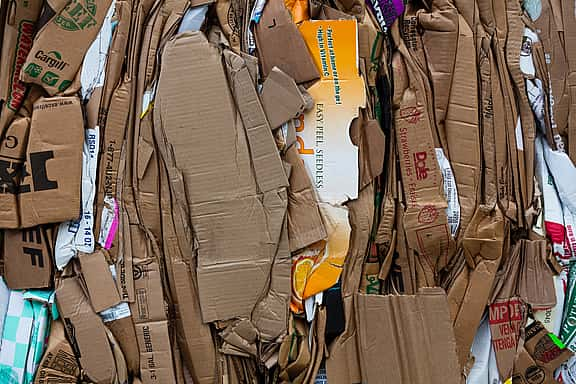Waste isn’t what it used to be. Whether you're dealing in construction rubble, retail packaging, food scraps or hazardous by-products, today’s waste management industry is contending with more complexity, more scrutiny, and more expectation than ever before.
Operators are under pressure to extract value, minimise harm, and meet the rising demands of regulators, customers and investors alike.
Here’s what’s topping the list of challenges and how smart businesses are responding.
1. Regulation that never rests
From Extended Producer Responsibility (EPR) rules to stricter emissions and contamination standards, the regulatory treadmill keeps moving. Whether you're a recycling facility, municipal operator or niche hazardous waste handler, compliance is no longer just a box-tick - it's an operational strategy.
The stakes are high: penalties are sharper, reporting is more demanding, and audits more frequent. Staying compliant now means building agility into your equipment strategy and record-keeping systems.
2. The tech tipping point
The digital transformation of waste management is well underway. AI-driven sorters, route optimisation software, paperless weighbridges, and automated diagnostics aren’t the future, they’re the present. And the gap between early adopters and the rest is widening fast.
Operators that invest in tech are seeing huge benefits: increased throughput, reduced contamination, better contract wins. But it’s not just about shiny new kit, it’s about integration, usability, and staff engagement.
3. Getting serious about sustainability
Customers and contractors are holding waste firms accountable for their own environmental impact. Whether that’s carbon footprint reporting, reduced diesel use, or investment in electric fleets, sustainability has become part of every tender, pitch, and public-facing comms plan.
More than ever, businesses are being judged not just on what they help divert from landfill, but how they run their own operations. Waste is no longer immune from scrutiny.
4. Skills shortages and labour pressure
Recruitment and retention remain tough across all parts of the industry. Manual sorting roles are harder to fill. HGV driver shortages haven’t gone away. Meanwhile, rising wages are squeezing margins even as service demands increase.
Automation is one response but the bigger challenge is balancing people and machines in a way that improves outcomes while protecting jobs and knowledge in the sector.
5. Cash flow crunch
For many waste operators, especially mid-sized or niche businesses, the costs of adapting to all of the above are coming at a tough time. Fuel, insurance, maintenance and compliance costs are climbing. At the same time, pricing pressure in tenders means margins are tight.
This makes financial flexibility essential. Whether it’s choosing equipment with lower running costs, phasing upgrades, or finding smarter ways to finance investment, the ability to stay agile is a key differentiator.
What next?
Operators that succeed in 2025 will be those who can treat complexity as opportunity. That means using data to make better decisions, investing in tech that delivers measurable return, and building resilience into how equipment, people and processes work together.
And importantly, it means knowing where your costs and risks lie, and being open to fresh ways of solving long-standing challenges.
Looking to unpack these ideas in more detail?
We’ve just wrapped up our “Trash Talk” sales workshop, designed to help equipment suppliers and operators in the waste sector make stronger, data-led decisions around technology, ROI and customer impact. If you're in the business of waste and ready to extract more value from your operation -this workshop could be for you.


